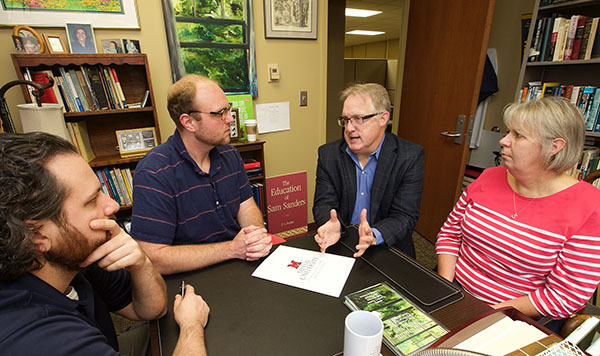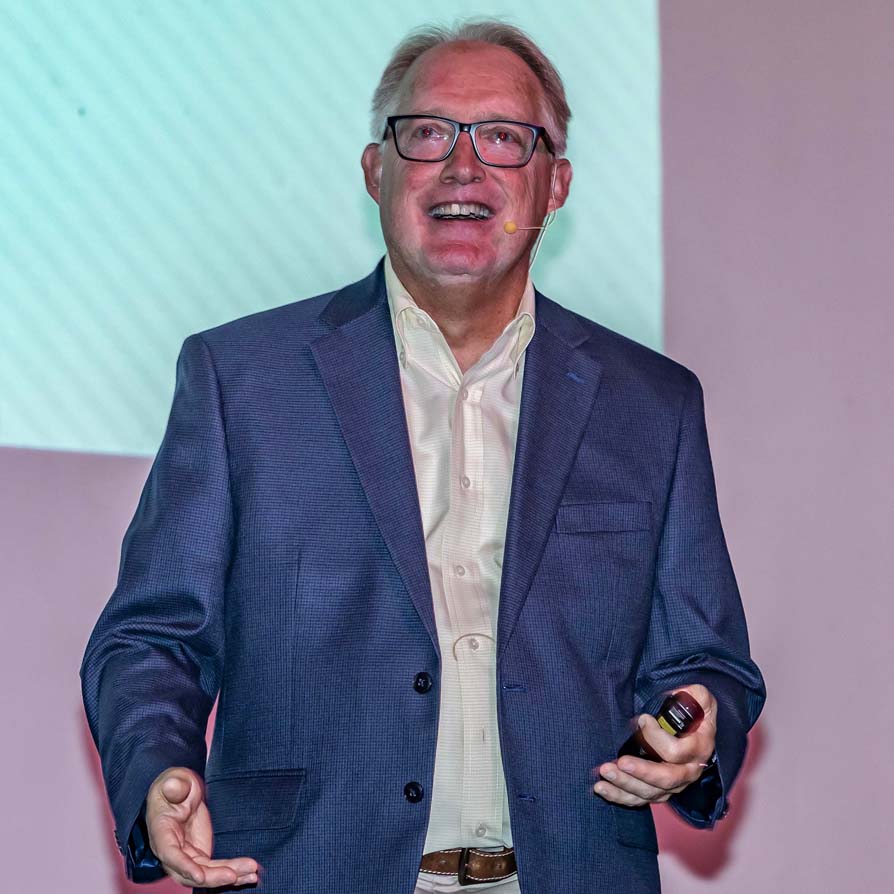A 30-year journey of championing the teacher-scholar tradition
With his 15th student-coauthored book, Thomas Poetter reflects on decades of collaboration and innovation

A 30-year journey of championing the teacher-scholar tradition
Because his long history of collaborations with students are far too numerous to list here — and more substantial than most, by almost any measure.
This fall, his 15th book coauthored with students, “Chicken Salad and the Curriculum of Life,” will be published, and it’s a milestone that reflects nearly 30 years of work with the teacher-scholar model.
“Early in my career, I made a commitment to think about students as more than just learners, but also producers of knowledge themselves,” said Poetter. “And Miami stands in the middle of this movement for universities to foster this notion of faculty as teacher-scholars who collaborate with students. If they're working together simultaneously in classrooms and on other projects, that's really something special.”
This commitment to create an environment that challenges students to learn by participating in research and through practical experience spans productive collaborations with both undergraduate and graduate students alike.
His book, “Teacher Leadership for the 21st Century,” now in its 5th edition, explores the “personal terrain of teaching” by including over 60 narratives and reflections from undergraduate student pieces written throughout his courses.
He also encourages regular undergraduate participation in the Reimagine Education Conference. Hosted by Miami’s College of Education, Health and Society, the conference is a student-led event now in it’s 25th consecutive year that features a wide range of scholarship that includes roundtables, posters, presentations, and final projects.
And his work with graduate students, especially those at the doctoral level, is even more expansive.

“I usually go for a publication in these classes,” Poetter said. “And students want to know if they can fail, if their work won't be accepted. And I always say, ‘Yes, it's possible.’ You have to be honest. But you also have to take risks sometimes. The point is to work towards something, and to grow in a way you wouldn't if you were just reading and writing a term paper.”
The risks usually pay off, for both Poetter and his students, who also regularly edit and publish work in The Currere Exchange Journal. They’ve also contributed to an ongoing book series called "Curriculum Windows."
Curriculum Windows comprises eight books that span several decades of academic curriculum-based inquiry from the 1950s to the 2010s. Each book focuses on a different decade, and within each, his students produce essays that retroactively reflect on curriculum trends of each era by analyzing their impact, evolution, and enduring significance.
The most recent book, “Chicken Salad and the Curriculum of Life,” again, brought together seven students who produced the entire book within a single semester.
Throughout the book, students take a reflective, autobiographical approach to curriculum theorizing that covers a wide range of topics including identity formation as teachers and leaders, navigating systems of power and inequity in schools and society, moments of hopefulness and hopelessness and change across their careers, the importance of community-building in educational spaces, and more.
In a larger sense, the book also encapsulates a key part of the core philosophy that also threads throughout Poetter’s entire career, which is this: Curriculum is far more than something that defines a course of study in a classroom. Rather, curriculum is actually at the core of almost everything we do as an organized society.
And as such, Poetter says, it helps shape our identities, relationships, and collective possibilities as a society, and not just in schools, but also in our communities, our institutions, as well as in the stories we tell about who we are and who we might become.
“All of that has to be part of our approach in thinking big picture about what counts,” Poetter said.
“And it’s important when you talk about how a university participates in the education of the polity at large, and not just by offering programs for students to become educators,” he said. “But also to help educate every person that comes through Miami — whatever degree they're taking — to become well-educated leaders in a democratic republic. That's the goal, I think. And if they're not treated like scholars now, how can they become the leaders of tomorrow?”
Established in 1809, Miami University is located in Oxford, Ohio, with regional campuses in Hamilton and Middletown, a learning center in West Chester, and a European study center in Luxembourg. Interested in learning more about the Department of Educational Leadership? Visit their website for more information.